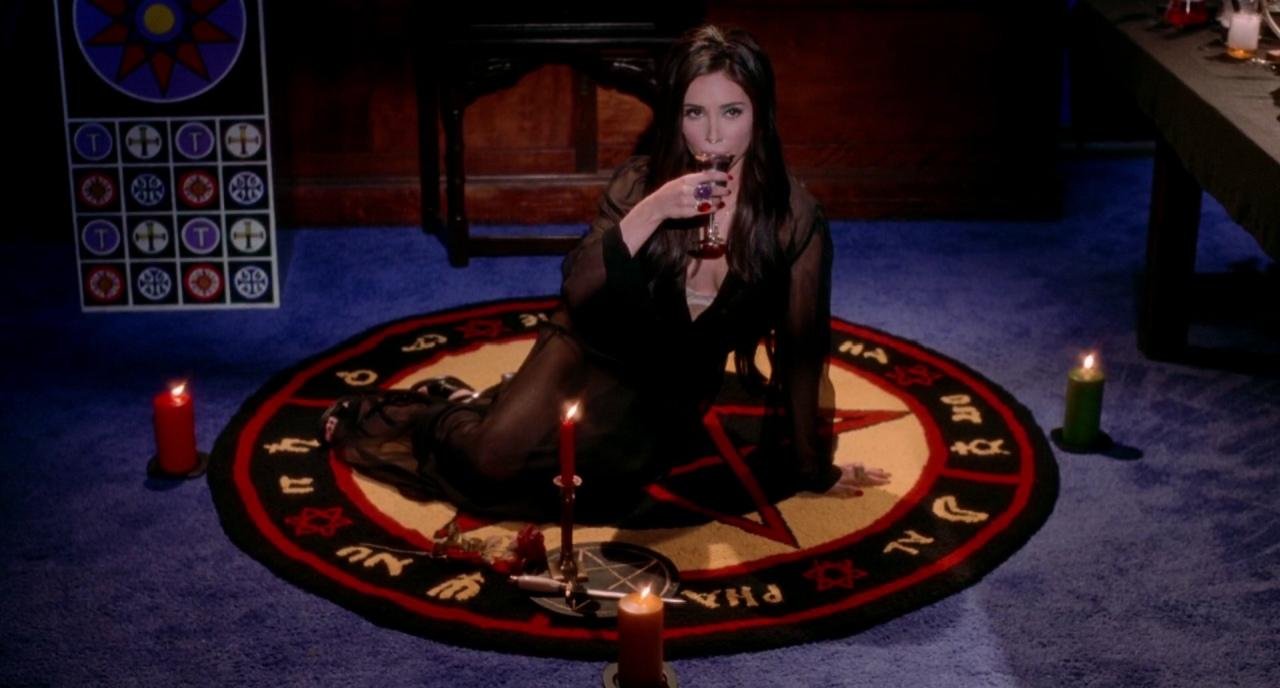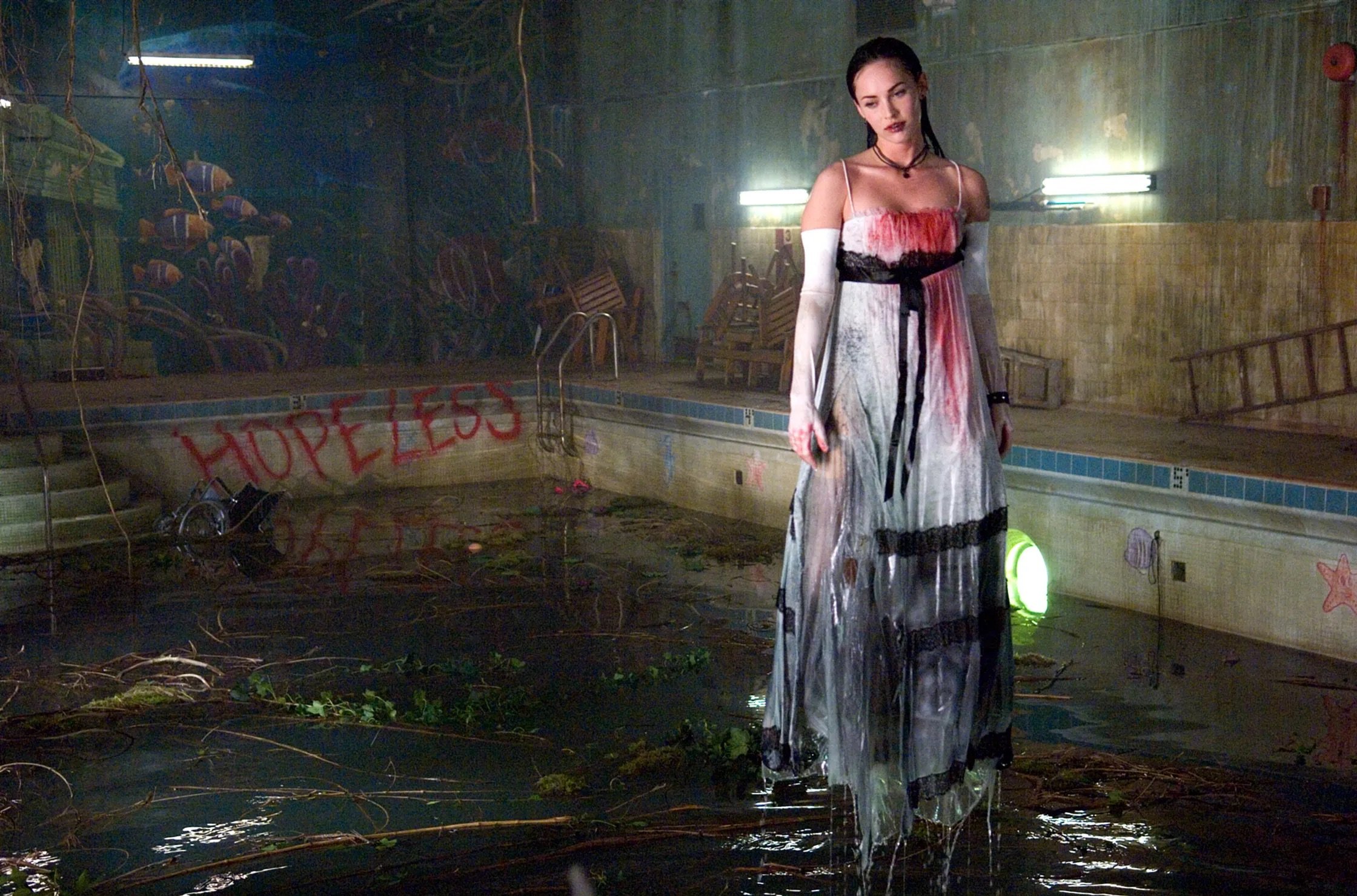Why Are “Female Manipulator Movies” So Popular?: An Analysis
An in-depth analysis of The Love Witch, Jennifer’s Body, and what makes female manipulator movies so popular as a whole. SPOILERS AHEAD!!
The Why: Explained
Women are growing tired of living in the shadow of the manic pixie dream girl. Two-dimensional female characters who do nothing but serve the male protagonist are trite and overdone. It’s refreshing to see women take on roles that would typically be held by men while also going against typical gender roles as a whole.
While male manipulator movies have characters such as Patrick Bateman – the female manipulator is much more complex and relatable. Even in their fantasy, the female manipulator movie holds a hint (or more) of reality, something we can relate to.
The typical female manipulator film generally touches on real and gritty themes and issues whilst also generating an escapist environment. These films serve to bring forth catharsis to female audiences, finally showing the raw reality of womanhood: the good, the bad, the ugly and the crazy.
The saccharine nature of women portrayed in male-led productions is laughable. In what world would these women really fall head over heels for a guy who listens to The Smiths and thinks that’s the paragon of music?
So naturally, it makes sense that the female manipulator would be a welcome change from the manic pixie dream girl of the 2000s and the femme fatale of the 50s.
A manic pixie dream girl is essentially a female who is characterized by their vivacious and quirky nature, whose main purpose within the narrative of a piece is to inspire and better the male protagonist, granting them a new lease on life. You see why this would be problematic, right?
The femme fatale, an astoundingly attractive seductress likely to harm the men who involve themselves with her, was revolutionary for its time. But, it still caters to the male gaze. The femme fatale was created by men for men, and is rooted in the fear they hold of women wielding power.
Film Analyses:
I’m going to focus on a few films as I delve deeper into the cultural phenomenon that is the “female manipulator” movie:
The Love Witch
Jennifer’s Body
Directed by Anna Biller
Image Courtesy: Pinterest
The Love Witch is a biting satirization of feminism and societally imposed gender roles. The film follows Elaine, a conventionally attractive young witch, on a desperate, fervent, quest for a man to love her and desire her as much as she does them. She does everything in her power to appeal to the male gaze, presenting in a hyper-feminine manner. Ultimately her desperation leads her to sex magic, when she cooks up spells and potions of seduction that work all too well in attracting men, but fail to keep them around. Her quest for love never works out, and bodies pile up in her wake as she desperately searches for the one, the man of her dreams.
Elaine is a unique case, seeing that she is essentially so far into her quest for love that she’s boxed herself into the role of a tradwife, essentially maintaining her misogynistic view on relationships and gender roles.
The film positions Elaine as having a string of romantic failures regardless of her reverence toward men. No matter how feminine, subservient, gorgeous, and perfect she is, nothing will lead her to finding the perfect man, because there simply isn’t one. Elaine embodies women’s internalized misogyny, very poignantly reminding us what happens if we succumb to our lesser impulses of seeking out male validation and compromising our personhood in the process.
The movie shows how easy it is to fall victim to our impulse and desire to be wanted, but takes a sinister twist by painting a murderous love-lorn woman as a sympathetic character simply yearning to be loved. It takes a woman being ultimately powerless, her fate being at the hands of her whims and circumstance, then twists that by granting her power through her kills. The reality of the misogyny coupled with the surrealism of the plot and the cathartic kills cements this as a must-see female manipulator movie.
Main Themes:
Internalized misogyny
Feminism & gender roles
Escapism:
Murder as a solution for male-caused disappointment
Directed by Karyn Kusama
Image Courtesy: The New Yorker
A box-office flop turned cult classic, Jennifer’s Body has the perfect mix of insane and improbable plot lines with just a touch of sickening reality. The film serves as a beautifully done allegory for a woman dealing with the aftermath of sexual assault.
In hopes of watching some hot guys play mediocre music, childhood best friends, Jennifer and Needy, unknowingly walk into a night that changes their lives forever. As one of the most popular and gorgeous girls in school, Jennifer drags her somewhat nerdy friend, Needy, to what she thinks is the event of the school year. But when the bar catches fire, and the band invites Jennifer into their van to get home safely, things take a turn for the worse.
At first, it’s greatly alluded to that Jennifer had been assaulted in the van. It is later revealed that the band had brought her into the woods to sacrifice her for a spiritual ceremony in which they would be granted instant fame and fortune. But when Jennifer lies about being a virgin, her having had sex before makes the ritual go incredibly wrong. She becomes possessed by a blood-hungry demon that drives her to seduce and devour the boys at her school. She satiates her needs for human flesh with the male population of the student body, cementing herself as a modern twist on the femme fatale.
When Jennifer begins to objectify and kill these men, it is when women are granted power in a way. I’m not saying the kills are inherently empowering (I kinda am), but metaphorically, they serve as a way for women to take back control and flip gender roles on their back.
It could be argued that Jennifer was simply another poor display of the femme fatale trope, but the layers of the storytelling go far beyond a simple seductress seeking to harm men. It alludes to the reality of sexual assault, and the resulting loss of perceived autonomy and ownership of one’s body.
Main Themes:
The aftermath of sexual assault
Sexualization & exploitation of women
Escapism:
Revenge through murder
Final Thoughts
My analysis of these films was not to go on some diatribe about how much I love them or talk about how amazing the cinematography was but to show that while “female manipulator movies” are inherently fantastical, there are typically underlying themes rooted in the reality of being a woman. Whether that be mommy issues, sexual assault, beauty standards, or mental illness, these films all have at least one thing we, as an audience, can hold onto as we watch, something that resonates with us.
Hopefully, we can finally wave goodbye to the manic pixie dream girl and femme fatale and usher in a new age of female manipulator films, which are, at their core, just films that provide women an escape from their reality while also acknowledging it in the process. Female manipulator movies are not like the typical male manipulator film, where it's just some guy being awful for three hours; they’re centered around relatable and complex female characters who grant the viewer a sense of escape from reality.
Women have much more to offer film than male empowerment or sex appeal. And even the reductive nature of the name “female manipulator movies” doesn’t do them justice. These so-called “female manipulator movies” are simply over-the-top, cathartic, and raw depictions of womanhood. I will acknowledge that a lot of aspects of these films are grossly unrealistic, but nothing will convince me that they aren't deeply rooted in the very real experiences women face on a day-to-day basis. These films are just fun-house mirror depictions of reality, adding in an element of escapism, catharsis, or raw violence, that isn’t typically part of real life.
I hope that everyone grows to love and appreciate female manipulator movies as I have, and see them not as silly and violent depictions of women, but as a critique of womanhood.
Strike Out,
Writer: Krizia Figueroa
Edited by: Sarah Harwell and Reanna Haase
Orlando


